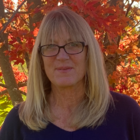Like many in the environmental health field, we are processing what this week’s election means for our communities, our children, and our collective efforts to build a healthier future.
Urgently needed progress on climate change, chemical contaminants, and more will likely once again be put on hold. Rather than strengthening safety rules to protect families and workers from environmental hazards, regulations will be loosened or rolled back, with potentially devastating outcomes. Rather than moving quickly toward the solutions we need to combat climate change, progress is likely to be reversed.
As always, those who will suffer most are people in low-income communities and communities of color, where polluting facilities of all kinds are most likely to do their damage, and where climate change hits hardest. People of color will also face — once again — a toxic cultural environment where some people feel emboldened to personally harm them.
This is a time when all of us are called upon to support one another and to renew our commitments to stand up for targeted individuals and communities. And to keep moving forward, together.
Science under attack, again
Last week, we wrote a piece encouraging our community to vote, up and down the ballot, for leaders who respected the role of science in decision making. We highlighted the important role of public agencies in protecting our health.
In the wake of this week’s election, we can expect efforts to severely weaken the institutions that have been built to protect human and environmental health, their work redirected to support industry interests. We may, once again, see individuals put in charge of public agencies whose core mission they actively oppose.
We are likely to again see the value of science dismissed, experts sidelined, and individual scientists under attack. We can expect budget cuts to programs that support healthy communities and healthy children.
Our work now
All of us working for environmental health and justice will need to rethink our approaches to ensure we are making the most difference we can — at the national, state, and local levels.
Standing up for independent science and scientific integrity will be more important than ever, and will require all of us to work together and support one another. CHE will continue to work with our partners to protect scientists who are targeted for “commercially inconvenient” research (see recent blog posts on safeguarding science and addressing corporate influence).
As a community, we will need to think creatively about what we can do to protect people from environmental threats to their health. In some cases, this will mean moving forward on policy efforts at the state level. A recent study examined trends in human exposure to chemicals included on California’s Proposition 65 list. The authors found that “state-level chemicals regulation can drive national exposure trends, particularly when undertaken by populous states. In this way, the country’s population as a whole stands to benefit even from single-state toxics regulation.”
Whether it’s offering a national platform for researchers to share findings on the health harms of plastic chemicals, working for cancer prevention, or keeping EPA and other federal agencies true to their mission, we will continue making an impact with our collective work.
Most of all, connections and community will help us all keep moving forward. CHE will continue to be a gathering place for those working toward a world with more environmental health and justice, not less. We are grateful to be in this work with all of you.



